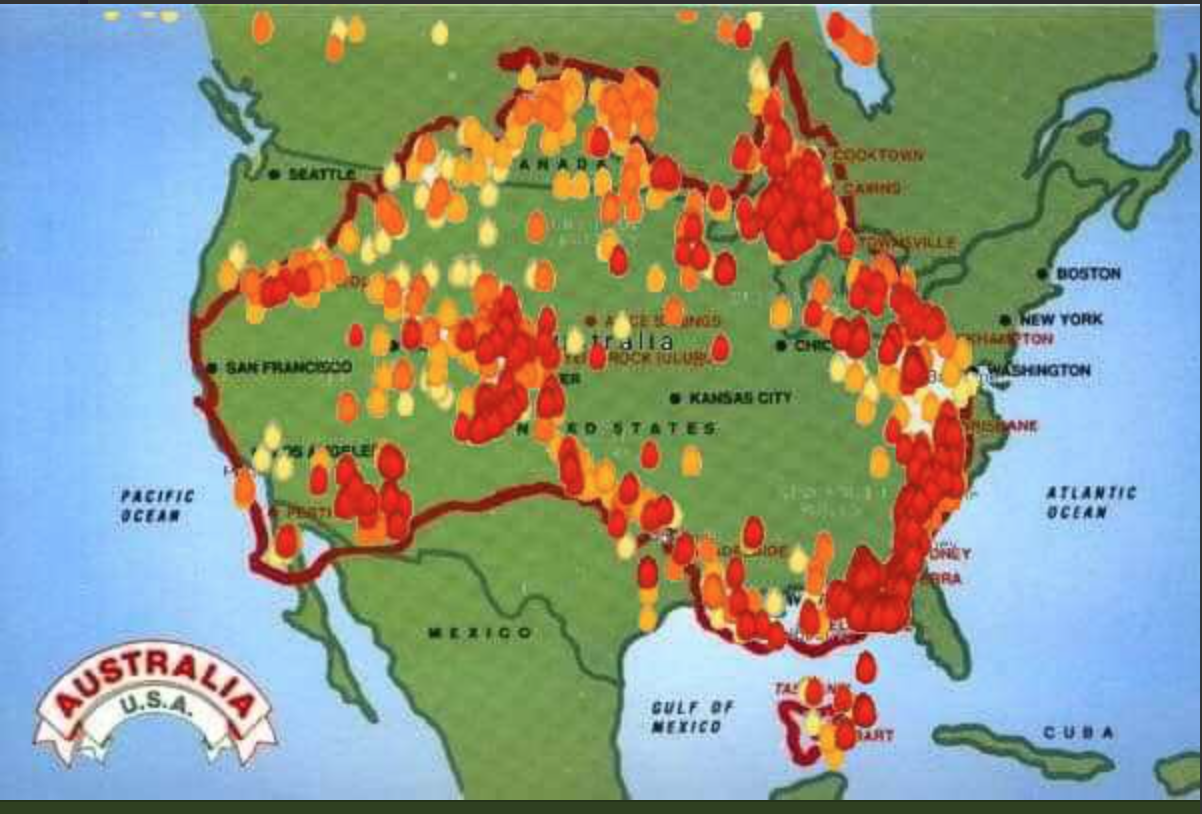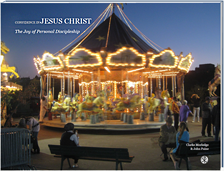Is climate change just a hoax, or is it real? If it is real, what can be really done about it, without killing the world economy?
Hugh Ross, president of Reasons to Believe, and evangelical apologetics ministry focused on the dialogue between science and faith, tackles a topic that often generates more heat than light. However, in Weathering Climate Change: A Fresh Approach, Ross does what the subtitle says, he takes a fresh approach that will both surprise and educate readers.

Will the ostrich be able to delay the impact of global climate change? According to Christian apologist Hugh Ross, in the contentious debate over “global warming,” the ostrich may provide more help to us than draconian and unpopular carbon credit schemes.
Before reading Weathering Climate Change, I made the rather common assumption that today’s relative climate stability has been around for much of earth’s history. It is just something that we take for granted. But Hugh Ross brings up data point after data point to demonstrate that such an assumption is completely false: For most of earth’s history, the world’s climate has ranged wildly in terms of global mean temperature. In other words, climate instability has been the norm in God’s creation.
Hugh Ross takes an Old-Earth Creationist view, that the earth is some 4.34 billion years old, as opposed to the view of a 6,000 to 10,000 year old earth, advocated by Young Earth Creationists. Ross contends that during the vast length of time of earth’s multi-million year history, particularly as we approach the current age, cyclical periods of global warming followed by ice ages of global cooling have always been up and down, up and down.
What is unique is that the past 9,500 years have been an anomaly during the whole of earth’s history. During this period, the global mean temperature has remained fairly constant. Hugh Ross attributes this remarkable period of climate stability to a variety of factors, including the impact of a massive meteorite in Greenland, a particular pattern of volcanic activity, the behavior of the magnetic poles, … just to name a few.
His point is to show that the development of an advanced technological civilization would have been impossible if all of these factors had not lined up perfectly. Furthering the argument that Ross made in Improbable Planet, we live on a planet that has been fine-tuned for human existence, under the most optimal conditions. Ross attributes this to the providential hand of God, that God would provide just the right complex set of factors to make modern human civilization possible.
Did humans just get lucky with this recent 9,500 year-long anomaly of climate stability? Or was it a product of a Mind? It is difficult to imagine how all of this came together at the right time, without a Creator God superintending the whole process. In comparison, a Young Earth view of creation fails to appreciate as much the marvelous precision it took for God to give us the exact conditions necessary for human civilization to flourish, at exactly the right time in earth’s history…. and that human flourishing is good news!
The bad news is that this current period of climate stability can not last forever, according to the research that Hugh Ross summarizes for the reader. Human efforts can either accelerate the shift towards the climate instability, or slow down the transition, but human engineering alone can not make the climate stable on a permanent basis. In other words, global climate change is real. It is not a hoax. That is just the way the world is. To place our hope in this world alone is futile, as compared to putting our hope assuredly in the God of the Bible.
With that context in mind, Hugh Ross points to evidence showing that humans are primarily responsible for the current acceleration of that shift towards climate instability. Over the past 70 years, the near 1 degree in Centigrade increase in the global mean temperature, has almost wiped out the 1 degree Centigrade drop in temperature, experienced during the prior 9,500 years. Human activity, through pronounced use of carbon-based fuels, are only making a catastrophic, though quite natural situation more likely to arrive sooner, rather than later. But there is some basis for hope, in that Hugh Ross believes that certain steps can be taken to slow down this acceleration, and delay the inevitable.
But what will eventually happen, if nothing is done to slow the acceleration? Misleading information suggests that global climate change will ultimately melt nearly all of the planet’s ice and raise the typical daytime temperature across the globe to intolerable levels. Yet as Hugh Ross describes it, the global temperature will eventually hit a peak, before dropping dramatically, and plunging the earth into another ice age. In other words, in the long run, global cooling poses a greater threat than global warming. So, if you fear rising sea levels alone, you might want to rethink that. That is only part of a more difficult problem.
Nevertheless, there are steps that can be taken that are “win-win” for us all, in contrast to the type of draconian solutions proposed by climate alarmists, that often elevate the young voice of activist Greta Thunberg. While such environmentalist ideas are well-meaning, public resistance to such drastic proposals will greatly impede their adoption, and only increase skepticism about climate change. Ross believes that there are a variety of solutions that humans can adopt that will simultaneously benefit the environment, while still allowing our high technology civilization to flourish. Here are just a few examples:
- Replanting the Sahara Desert. Many find it hard to believe, but the Sahara region of North Africa once was the primary agricultural source of food; that is, the “bread basket,” for the ancient Roman empire. But deforestation of the Sahara greatly expanded it into the vast desert region that exists today. By giving North Africans incentives to stop stripping vegetation on the edge of desert and replanting those edges with vegetation, it would go a long way towards increasing the amount of carbon dioxide that could be absorbed from the earth’s atmosphere, back into living plants.
- More efficient lumbering. Instead of clear-cutting forests in the Amazon to make for more inefficient pasture land, incentives can be given to have smarter practices of thinning out forests, allowing newer growth to absorb more carbon dioxide and taking down older growth that releases carbon dioxide into the atmosphere, as that older growth decays.
- Replace the production of cow beef with ostrich, as a primary source of red meat. Cows inject a lot of methane into the atmosphere, whereas ostriches contribute little methane. Incentives can be given to encourage ostrich farming, which actually consumes far less pasture land than cows do. Ostriches also consume roughly a third less resources, in terms of water, as compared to cows.
These are all innovative ideas that are rarely discussed on public forums for addressing the climate change crisis. Why do we not hear more about such fresh approaches to climate change? Perhaps we need to recalibrate the conversation, and move away from endless, heated debates over carbon credits, that only the super-wealthy in the West would be willing to afford.
Kudos go to Hugh Ross for helping Christians and non-Christians alike think through new ideas that will help us to be better stewards of God’s good creation. Admittedly, ideas such as moving to an ostrich-primary meat system from a cow-primary meat system are difficult to advance when ostrich meat prices are nearly three times as much as cow meat prices. However, with the encouragement of ostrich farming, the price of ostrich meat should come down enough, that it would offset other, more-costly mechanisms designed to reduce humanity’s carbon footprint.
Instead of fixating on repeated debates about wind and solar power versus carbon consumption, what if we were to move beyond those discussions and talk more about solutions that are rarely mentioned in the international media, such as better forest management, and how to expand ostrich farming?
Hugh Ross’ fresh approach is a welcome voice to the discussion, particular as an evangelical Christian. Sadly, there are many people today, including many Christians, who reject concerns about climate change, most probably due to the nature of the highly politically charged solutions being promoted, such as regulating national economies, through various schemes of managing carbon credits. Instead, Hugh Ross offers a path forward to creatively find “win-win” solutions to the current environment crisis, thus demonstrating that care for the planet and care for human flourishing are not at fundamental odds with one another, and that such creation care embodies acts of obedience that truly honor God, as the Creator of all things.
When God created Adam, the Lord placed him in the garden to work it and to keep it (Genesis 2:15). It is very tempting for us to ignore God’s command to care for the earth, when faced with environmentalist extremism in our day that worships the creation as opposed to the Creator. When we give into that temptation, it is like being like an ostrich and putting our head in the sand.
But what if there are better solutions? What if we should be like the ostrich, in a different way? What if we were to start to eat the ostrich instead? After all, as nutritionists like to tell us, “you are what you eat.”
How should we be like the ostrich?
Dr. Hugh Ross was featured as part of a worship service at Grace Church in St. Louis, via Zoom, followed by a period of Q&A:


